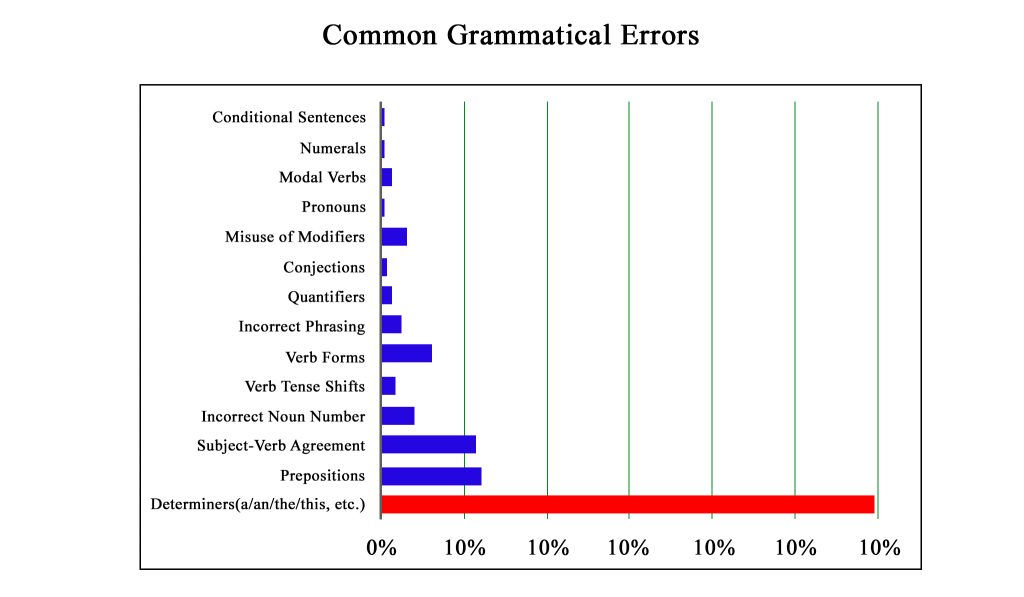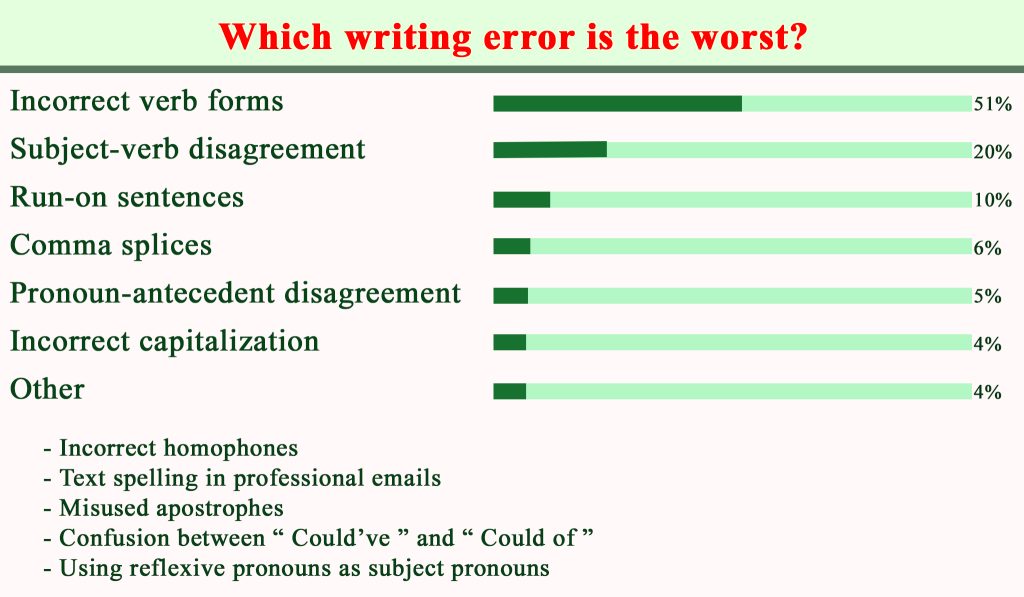 Accurately communicating concepts in scientific writing requires mastery of exact language and syntax. This blog examines typical traps and offers advice on avoiding mistakes. Recognize these linguistic traps to help you communicate science more clearly and believably.
Accurately communicating concepts in scientific writing requires mastery of exact language and syntax. This blog examines typical traps and offers advice on avoiding mistakes. Recognize these linguistic traps to help you communicate science more clearly and believably.
What are the Grammar Errors in Scientific Writing?
The following list of five typical grammar errors should be avoided when writing your following academic paper:

Subject-Verb Disagreements
This is a common mistake when the subject and verb in a statement have different numbers. According to English grammatical rules, make sure that singular subjects are coupled with singular verbs and plural subjects are associated with plural verbs.
- Incorrect: The collection of data and its analysis are time-consuming.
- Correct: The collection of data and its study is time-consuming.
Nominalization of Verbs
Wordy and complex phrases can arise from nominalization, which is the process of converting verbs into nouns. Avoid using nominalized verbs—also referred to as smothered verbs—excessively to preserve clarity and conciseness.
Lack of Parallelism
A sentence’s readability and grammatical coherence are guaranteed when its parallel structure is maintained. Make sure that sentences with identical parts have the same grammatical structure.
- Incorrect: The study investigates the relationship between median, count and whether they contribute to descriptive analysis.
- Correct: The study investigates the relationship between median and count and whether they contribute to descriptive analysis.
Missing Introductory Commas
The significance of initial commas, which aid in separating introductory material from the main clause, is something writers frequently need to remember. The sentence’s flow and confusion may result from omitting these commas.
- Incorrect: While conducting the experiment the researchers observed unexpected results.
- Correct: While conducting the experiment, the researchers observed unexpected results.
Use of the Adverb “Respectively”
Adding the word “respectively” can improve conciseness and clarity when presented with lists of related objects. This shortens the statement and helps prevent repetition.
- Incorrect: Continuous and categorical variables are described as median and count respectively, for descriptive analysis.
- Correct: Continuous and categorical variables are described as median and count, respectively, for descriptive analysis.

What are the Syntax Errors in Scientific Writing?
The following list of five syntax errors should be avoided when writing your following research paper:
Acronyms & Abbreviations
Shorter versions of words or phrases are called acronyms. An acronym is a name or expression comprising more than one letter at the beginning. When introducing an acronym or abbreviation in a text, utilize it thoroughly before using it again in the following references.
- Incorrect: The use of intraoperative technology to increase EOR while monitoring neurological function is applied.
- Correct: The use of intraoperative technology to increase the Extent of Resection (EOR) while monitoring neurological function is applied.
Capitalization
In writing, capital and lowercase characters are used to indicate something. Common nouns are not capitalized, although proper nouns and the first word in a phrase usually are.
- Incorrect: A review of the Meta-analysis was performed
- Correct: A review of the meta-analysis was performed.
Word Choice
Choosing the most accurate and suitable words to express a specific idea is known as word choice. Selecting words that appropriately convey the intended meaning is crucial.
- Incorrect: The clinical benefit of ICP monitoring remains in discussion.
- Correct: The clinical benefit of ICP monitoring remains controversial.
Sentence Fragments
An unfinished sentence without a primary clause is called a sentence fragment. Ensuring that every sentence is grammatically sound and conveys the entire idea is crucial.
- Incorrect: The results suggest that active ICP monitoring is associated with improved outcomes after TBI. while the indication for monitoring is limited to the most severely ill patients.
- Correct: The results suggest that active ICP monitoring is associated with improved outcomes after TBI, while the indication for monitoring is limited to the most severely ill patients.
Using Quotation
You can denote direct speaking or indicate the start and finish of a quote. It is crucial to utilize quotation marks correctly and avoid unnecessarily using them.
- Incorrect: Pain in such conditions is often refractory to treatment, including microvascular decompression.
- Correct: Pain in such conditions is often “refractory” to treatment, including microvascular decompression.

Conclusion
Scientific writing requires close attention to syntax and language. Reducing frequent mistakes improves the overall communication of study findings and their clarity and trustworthiness. Researchers must prioritize linguistic precision to ensure accurate knowledge distribution and promote a more profound comprehension of scientific concepts within the academic community.
